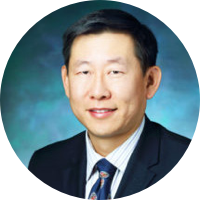Yun Guan, MD, PhD

Dr. Yun Guan is an associate professor of anesthesiology and critical care medicine at the Johns Hopkins University School of Medicine. His multidisciplinary research focuses on mechanisms of chronic pain and developing better strategies and novel targets for treatment of pathological pain conditions.